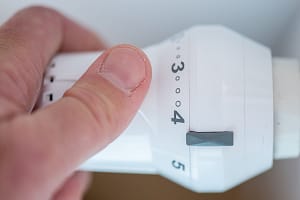The Mayor of London, Sadiq Khan, has today called for help for lower-income Londoners through the spiralling cost of living by bringing in targeted support on a similar scale to the measures that helped the country through the peak of the COVID-19 pandemic.
The Mayor has called on the Government to introduce welfare support to help the Londoners most in need through the current crisis. New data shows that while the emergency measures introduced in 2020 and 2021 helped prevent an increase in financial hardship in London, financial inequalities across the capital were exacerbated.
Read more related news:
With inflation at 10.1 per cent and the rapidly rising energy price cap set to hit the poorest Londoners the hardest this winter, Sadiq is urging Ministers to take steps that will help lower-income Londoners.
This includes introducing a Lifeline Tariff to ensure the most vulnerable people receive a basic amount of free energy every day, giving the Mayor the power to freeze private rents in the capital for two years, providing free school meals to all primary school children and uplifting Universal Credit in line with inflation.
It comes as the first data from City Hall’s Survey of Londoners showed:
- The number of lower-income Londoners living with food insecurity remained at 44 per cent from 2018-2019 and 2021-2022.
- The proportion of higher-income Londoners with unsecured debt fell from 40 per cent to 31 per cent, while for lower-income Londoners it remained largely unchanged from 42 per cent to 40 per cent.
- The proportion of Londoners earning more than £37,900 without £1,500 in savings fell from 15 per cent to eight per cent, while for lower-income Londoners it remained largely unchanged from 66 per cent to 61 per cent. This supports findings from the Bank of England that found higher-income households and retirees were more likely to have increased their savings during the pandemic.
- Disabled Londoners, single-parents and Black Londoners are some of the groups least likely to have savings of at least £1,500 meaning a lack of support would hit these groups hardest.
- 13 per cent of Londoners said they were not able to keep their home warm enough in winter in 2021-2022 when the survey was carried out ahead of the significant energy price cap increases, compared to 12 per cent in 2018-2019.
The Survey of Londoners took place between November 2021 and February 2022 before the full effects of the cost-of-living crisis began to hit. Since then, polling from City Hall has shown that 20 per cent of lower-income Londoners have regularly or occasionally gone without food or essential items or relied on outside support in the last six months emphasising the vital need for Ministers to ensure support is given to the people who need it the most.
The Mayor continues to do all he can to help Londoners, including spending more than £80m this year to help those struggling with the rising cost of living. That includes more than £50m to tackle fuel poverty through the Mayor’s Warmer Homes programme and energy advice services, more than £20m to improve security for private renters and house Londoners who are rough sleeping or homeless, more than £5m to connect Londoners with welfare advice, and £400,000 to tackle food insecurity.
The Mayor of London, Sadiq Khan, said, “The last two years have been incredibly hard for our country and our city and I’m hugely concerned by the fact that, in London, existing financial inequalities have been exacerbated by the pandemic.
“With the spiralling cost of living already hitting those on lower incomes the hardest, it’s essential that the Government take urgent action to help make ends meet.
“That means immediately introducing a pandemic-style package of welfare support targeted directly at those on lower incomes to help them survive this winter, prevent inequalities growing further and ensure we can build a better and more prosperous city for all Londoners.”






Leave a Comment